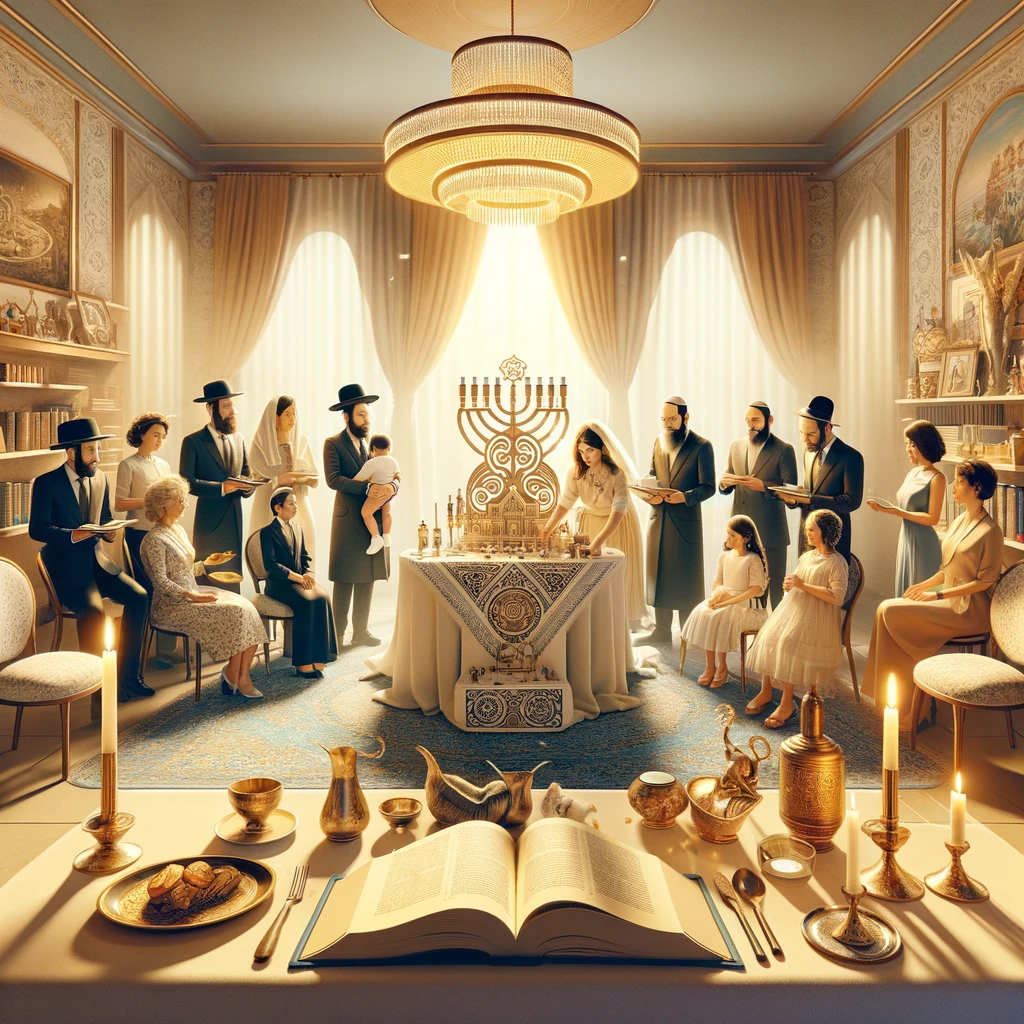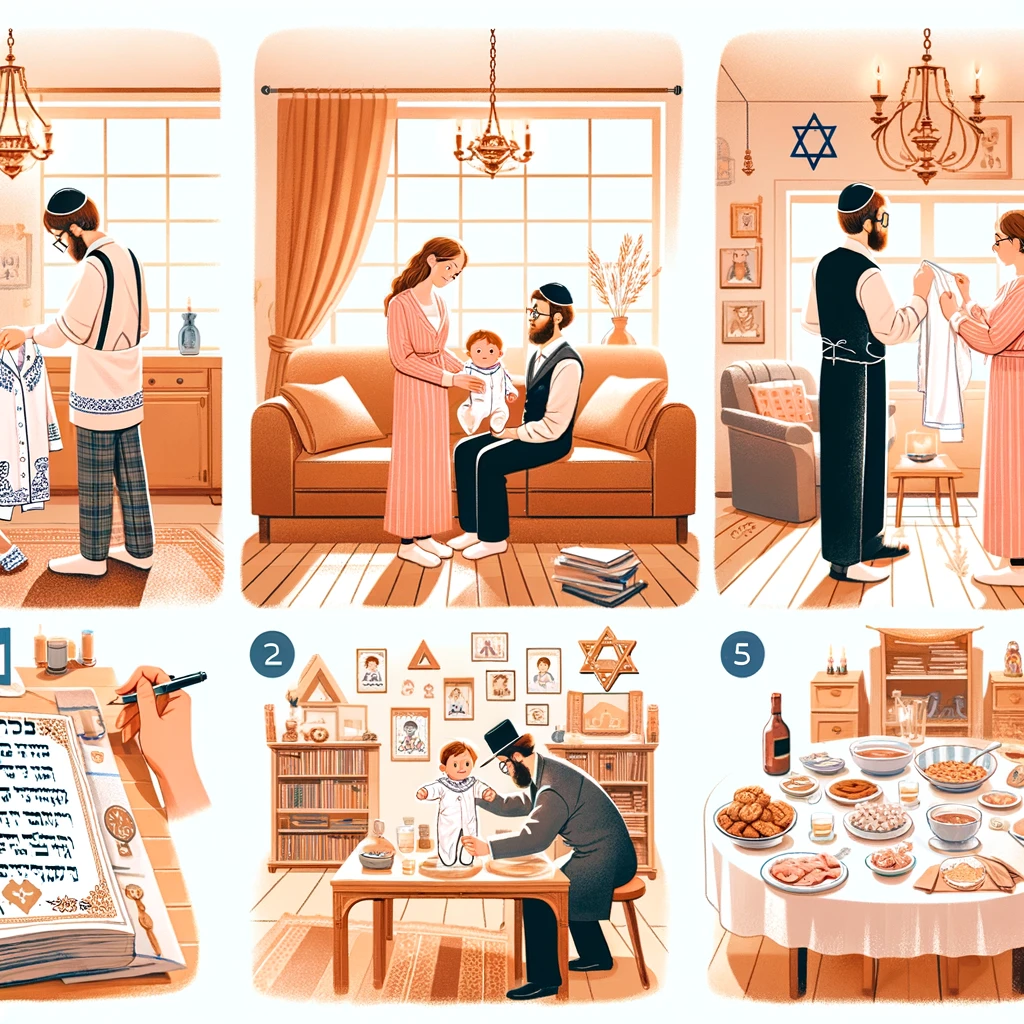Introduction to the Covenant of Circumcision: Meaning, Tradition, and Innovation
Qualified sap

 424
424 
Covenant of Circumcision in the Modern Era: Between Tradition and Innovation
The covenant of circumcision, one of the oldest and most significant rituals in Judaism, faces unique challenges in the current era. While its roots are deeply planted in tradition and commandments, it is required to deal with a changing reality of advanced technology, social diversity, and cultural transformations. This article will examine how mohels bridge the gap between the past and the present, and find creative ways to preserve the essence of the covenant in a dynamic world.
Covenant of Circumcision and Technological Advancement: With the development of modern medicine, the world of circumcision is also undergoing changes. Many mohels today incorporate innovative tools and techniques to ensure the safety and accuracy of the procedure. Disposable sterile knives, advanced medical instruments to examine the baby before the covenant, and even controlled use of pain relief methods - all of these have become an integral part of the modern mohel's toolbox. However, it is important to emphasize that technology serves here as an auxiliary tool only and is not meant to replace the essence and significance of the covenant of circumcision.
The Challenge of Cultural and Social Diversity: Contemporary mohels operate in a heterogeneous and diverse society. They are required to cater to diverse audiences, ranging from religious and traditional families to those less identified with the religious lifestyle. The key to success lies in the ability to tailor the language and approach to each family while maintaining the essential values and customs of the covenant. Proficient mohels excel in cultural sensitivity, empathy, and communication skills that allow them to connect people from different backgrounds to the profound meaning of the covenant of circumcision.
Between Israel and the Diaspora - Covenant of Circumcision as a Bridge: The covenant of circumcision serves as a connecting thread among Jews all over the world. For mohels operating in the Diaspora, the covenant is not only a religious act but also a tangible expression of identity and belonging to the Jewish people. Through this moving ritual, they help families reconnect with their roots and shared history, and feel part of a global community. At the same time, mohels in Israel enjoy the advantage of operating in a supportive environment rich in resources, allowing them to preserve and enrich the tradition in an immediate manner.
Comprehensive Training - Key to Quality Circumcision: To adequately address the challenges of the times, mohels require comprehensive and up-to-date training. In addition to a complete mastery of the laws and customs of circumcision, they must acquire extensive knowledge in modern medicine, specialize in innovative techniques and procedures, and develop sensitivity and interpersonal skills. Such training, which combines proficiency in tradition with advanced tools, ensures that the circumcision is performed at the highest level, both halakhically and in terms of safety and professionalism.
Covenant for Generations - The Future of the Covenant of Circumcision Amidst Rapid Changes and Complexities of the Current Era: The covenant of circumcision stands as a solid rock of tradition and Jewish identity. It survives and thrives due to mohels' ability to adapt to a changing reality without compromising the essence and meaning of the covenant. By doing so, they ensure that future generations will continue to enjoy this foundational Jewish experience, and that the covenant of circumcision will remain a milestone in the lives of Jews everywhere.
Despite its ancient origins, the covenant of circumcision demonstrates its ability to adapt and harmoniously integrate into modern life. Each time a Jewish baby enters into the covenant of Abraham our forefather, we reconnect with our glorious past, but also step confidently into the future, full of promise and hope. The covenant is not just a one-time ritual; it is an eternal statement of our commitment to our identity, our values, and the existence of the Jewish people for generations to come.
Questions and Answers:
Does the use of advanced technology compromise the traditional essence of the covenant of circumcision?
On the contrary. A thoughtful integration of technological innovations allows mohels to perform the covenant more safely and accurately while adhering to halakha. Technology is a tool in the hands of the mohel, helping to preserve the spiritual and ethical essence of the covenant. It is important to remember that Jewish tradition has always been characterized by openness to new ideas, as long as they promote Jewish values and the common good.
How should mohels deal with challenges such as secularism or distancing from tradition in society?
The key lies in sincere and open dialogue, based on listening and inclusion. Mohels need to be attentive to the needs and concerns of families and adapt their guidance accordingly. It is important to explain the profound meaning of the covenant in a relevant language tailored to the audience, highlighting universal values such as identity, heritage, and belonging. An inclusive and empathetic approach can help bridge gaps and reconnect with tradition.
Is the training of mohels today properly regulated and supervised?
In Israel and in several countries around the world, there are official certification programs for mohels, including theoretical and practical studies in halakha and medicine. However, in some communities, the traditional apprenticeship method is still practiced, where young mohels learn alongside an experienced mohel. In any case, certified mohels have an ethical and professional obligation to stay updated and continue their education regularly to be prepared for the changing challenges of the times.
Despite all the changes and challenges, the practice of circumcision remains steadfast and rooted in Jewish identity. This is a testament to the resilience of the tradition, which succeeds in encompassing the new without losing the old and cherished. At the forefront of the effort to preserve and renew stand the mohels, who, through their dedicated work, connect generations and build bridges to the future. Thanks to them, every baby entering into the covenant of Abraham our forefather joins a wonderful chain of faith, legacy, and belonging that will, we hope, continue until the end of all generations.






